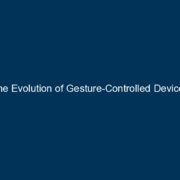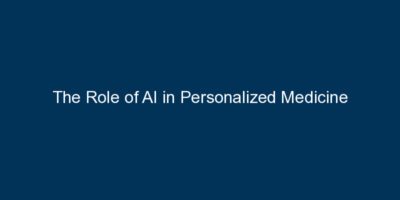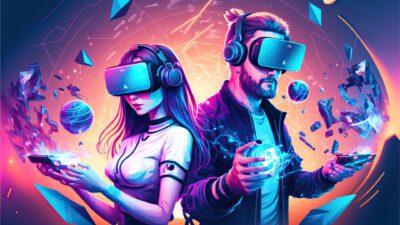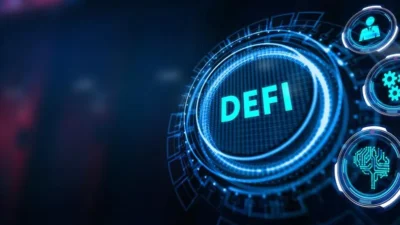In the ever-evolving landscape of healthcare, Artificial Intelligence (AI) has emerged as a transformative force, particularly in the realm of drug discovery. This blog explores the profound impact of AI on the process of discovering new therapeutic agents, shedding light on the innovations that are accelerating the development of life-changing medications.
I. The Traditional Drug Discovery Landscape: Challenges and Opportunities
Complexity of Biological Systems
Traditional drug discovery is a complex and time-consuming process. Researchers grapple with the intricate workings of biological systems, seeking to identify compounds that can effectively target specific disease mechanisms.
High Costs and Low Success Rates
The financial investment and time required for drug discovery are significant, with high attrition rates at various stages. Many potential drug candidates fail to progress due to unforeseen side effects, lack of efficacy, or other unanticipated challenges.
II. How AI is Transforming Drug Discovery
Accelerated Target Identification
AI algorithms analyze vast datasets, including genomic and proteomic information, to identify potential drug targets. This accelerates the initial phase of drug discovery by pinpointing key proteins or genes associated with specific diseases.
Virtual Screening and Predictive Modeling
AI-driven virtual screening techniques and predictive modeling enable researchers to assess a vast array of chemical compounds for their potential as drug candidates. This computational approach streamlines the identification of molecules with desired therapeutic properties.
Optimizing Clinical Trial Design
AI is enhancing the design and execution of clinical trials by analyzing patient data to identify suitable candidates, predict potential adverse events, and optimize the trial parameters. This leads to more efficient and targeted clinical research.
III. Machine Learning in Drug Discovery
Pattern Recognition for Drug Design
Machine learning algorithms excel at recognizing patterns within complex datasets. In drug discovery, these algorithms analyze chemical structures, biological data, and historical information to predict the properties of new compounds, aiding in the design of novel drugs.
De Novo Drug Design
AI facilitates de novo drug design, where algorithms generate entirely new molecular structures based on desired properties. This innovative approach opens avenues for creating customized drugs with enhanced efficacy and minimized side effects.
IV. AI in Repurposing Existing Drugs
Identification of Repurposing Opportunities
AI is instrumental in identifying existing drugs that have the potential to be repurposed for different therapeutic indications. By analyzing biological data and known drug effects, AI algorithms highlight repurposing opportunities, expediting the development of new treatments.
Drug-Drug Interaction Predictions
AI algorithms predict potential interactions between drugs, helping researchers assess the safety and efficacy of combining different medications. This proactive approach minimizes the risk of adverse reactions and enhances the efficiency of drug combinations.
V. Challenges and Considerations in AI-driven Drug Discovery
Data Quality and Bias
The effectiveness of AI models relies heavily on the quality and diversity of the data used for training. Biases within datasets can impact the accuracy of predictions, necessitating careful curation to ensure fair and reliable results.
Interpretability and Trust
The “black-box” nature of some AI models poses challenges in interpreting their decisions. Establishing trust in AI-driven drug discovery requires transparent and interpretable algorithms to validate the reliability of predictions.
VI. The Future Landscape of Drug Discovery with AI
Personalized Medicine
AI is paving the way for personalized medicine by analyzing individual patient data to tailor treatments based on genetic, lifestyle, and environmental factors. This shift towards precision medicine holds the potential for more effective and targeted therapeutic interventions.
Drug Discovery Beyond Traditional Boundaries
AI’s ability to analyze diverse and unconventional data sources, such as real-world evidence and patient-generated data, expands the possibilities for drug discovery beyond traditional boundaries. This inclusive approach broadens the scope of potential discoveries.
Conclusion
Artificial Intelligence has ushered in a new era in drug discovery, offering unprecedented speed, efficiency, and innovation. From target identification to virtual screening and repurposing existing drugs, AI is redefining the landscape of pharmaceutical research. As the synergy between technology and medicine strengthens, the future holds the promise of more personalized, effective, and accessible treatments. While challenges such as data quality and interpretability persist, the transformative potential of AI in drug discovery is undeniable. The journey towards groundbreaking medications and improved patient outcomes is now intertwined with the capabilities of AI, marking a revolutionary chapter in the quest for medical advancements.



















Comments